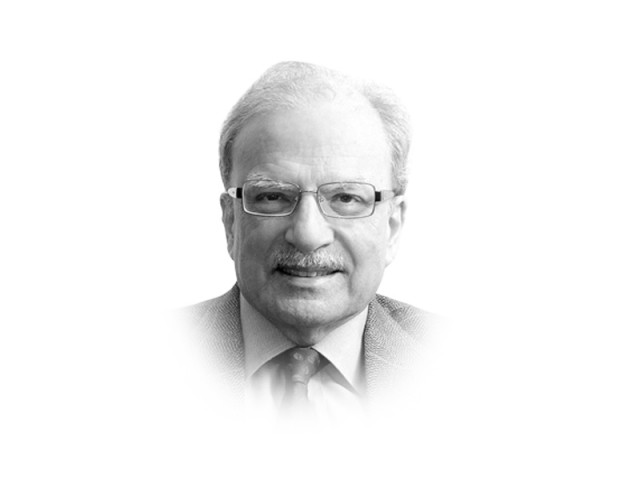Good governance and the middle class
The person elected to lead the system should have the respect of both the ruling party and the opposition.

The writer is a former caretaker finance minister and served as vice-president at the World Bank
Having obtained the reins of government in the elections of 2008, the party lost them in 2013. The loss from the PPP’s point of view was catastrophic. The reason for this debacle was simple but instructive. The party did little to satisfy the needs of the people who had sent it to Islamabad. The PML-N, under Prime Minister Nawaz Sharif, has the opportunity to turn the process of gaining power and its use into a virtuous cycle. For the first time since the Pakistan Muslim League became PML-N, it should have five uninterrupted years to prove that it can deliver what people really want. What they want is a responsive government.
The PML-N’s large vote bank, almost twice the size of two of its largest competitors, has a significant segment made up of an insurgent middle class. This segment of the population is growing rapidly. It is also large, restless and assertive. What are its aspirations and how can they be satisfied? In addition to two of its demands on which the PML-N government has focused a great deal of its attention since assuming office, there are four others that demand government action. Taken together, all six need to be on top of the prime minister’s ‘to do’ list. Of the two about which there is promise of immediate action — improving the supply of electricity and handling the unsettling problem of extremism — it is the first that has seen some action. The other is the subject of considerable debate in the corridors of power. There has been little mention of the remaining four.
The four that also need to be worked upon are the quality of governance, preparing the youth to play a productive role in developing the country’s economy and contributing to the development of an inclusive political order, improving the quality of life in the country’s large cities, and ending Pakistan’s extreme international isolation. Each of these needs some discussion. I will begin with the first, the quality of governance.
There can be no doubt that what hurt the PPP the most was its indifference towards the people’s desire that public officials, both elected and appointed, should work for the good of the citizenry. The PPP’s five years in office were marked by mounting official corruption, the use of public sector enterprises for personal gain and the callous destruction of public assets. The railway system saw all three aspects of the PPP’s style of governance. The new government should not only put an end to these practices but should also sharply reverse course. Prime Minister Nawaz Sharif said so in his first television address to the nation, since assuming office. But he did not provide details. What is needed the most at this delicate moment in the country’s history is to establish a system of accountability in which the people have confidence.
It was during his first tenure as prime minister that Nawaz Sharif brought the concept of ‘ehtesab’ into governance and also into public discourse. His administration set up an institution that was meant to keep a watch on those who occupied public office and punish those who seriously deviated from the legally sanctioned way of doing business. In translating this objective into public policy and creating institutional mechanisms for making it effective, the government badly erred. That approach to accountability was followed by the administrations that came after the first Sharif government. In other words, the first and second Sharif administrations, the two headed by Benazir Bhutto and those led successively by General (retd) Pervez Musharraf and Asif Ali Zardari used various accountability mechanisms for doing precisely what they were meant to stop: the use of political authority for personal and party gains.
The first order of business in this area for the new government should be to review the accountability law currently in place and sharpen its focus. The institution responsible for implementing the law should be made autonomous. It should be protected from interference by the executive authority. A useful precedence now exists for ensuring that important institutions function independently and enjoy autonomy. This was accomplished by the Eighteenth Amendment in the case of the election commission. The accountability system’s head should be appointed for a long enough term to give him (or her) total independence. The term should not overlap with the term of the government. The person elected to lead the system should have the respect of both the ruling party and the opposition. Its work should be transparent and should be done expeditiously. Only a fundamental system reform will produce a structure to meets the needs of the citizenry.
Published in The Express Tribune, September 2nd, 2013.
Like Opinion & Editorial on Facebook, follow @ETOpEd on Twitter to receive all updates on all our daily pieces.
















COMMENTS
Comments are moderated and generally will be posted if they are on-topic and not abusive.
For more information, please see our Comments FAQ